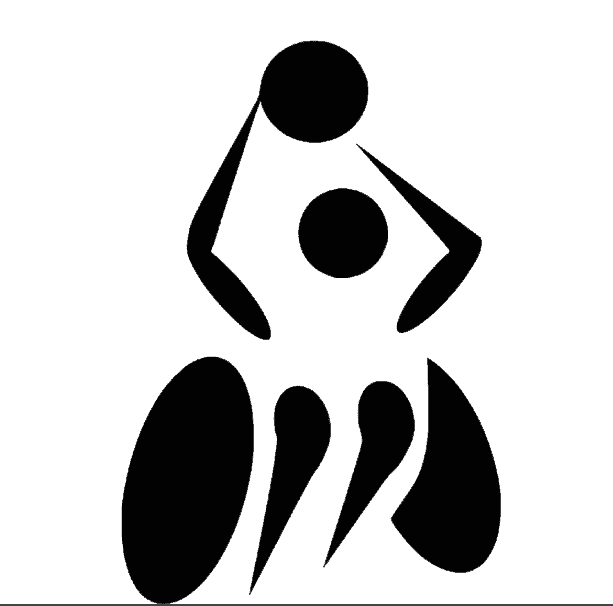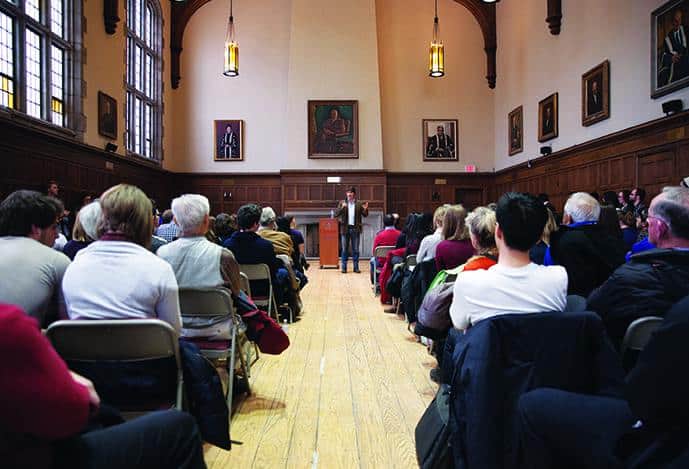Time to clean up wheelchair sports

author: john loeppky | editor-in-chief

Time for parasport to be held accountable/Pixababy
Honesty is the best policy
Wheelchair sports, now stylized as parasport, has not been held to account for its transgressions over the years. In my time in wheelchair basketball and rugby, and it was a wonderful time that quite honestly saved my life, I have seen the infection of the inspiration narrative take over to the point where those involved have not been held to account. Disabled athletes are not used to being told the truth because mainstream media wants to focus on the fact that they can play sports at a high level while also (shocker) not being able-bodied. Well, here are a few things to ponder.
First, a small example. Wheelchair Basketball Canada set up a centralized training academy in Scarborough, Ontario. It went so well that the men finished twelfth at the most recent world championships while absolutely decimating the junior programs across the country. As the best junior players in the country were pressured into training at the academy the program revealed itself as the win at all costs outfit that we read about in stories about the AAU, the women’s program finished fifth. The men’s program has relied on the world’s best player, Patrick Anderson, since 1996 and have put recruiting on the back burner for at least the last five years. New coaches have arrived in the last year that I have faith in, but I doubt they can truly undo the toxicity that has been put into the national program for so long.
Here’s how director Mike Frogley – who once talked me out of punching a junior coach known for being emotionally manipulative – describes the program (courtesy of the program’s website).
”The National Academy goes beyond being excellent to being the very best and developing the very best. It will take good athletes and make them great wheelchair basketball players. It will take great teams and make them world champions and Paralympic gold medalists. It is the new gold standard, not just innovative, but groundbreaking to such an extent as to lead and change the game of wheelchair basketball.”
I’ve yet to see how coming twelfth can change anything other than a negative impact on funding. There are so few resources that athletes are now crowdfunding for new equipment. The model is broken, and no one is loud enough to speak up.
Now, I’ll speak to some situations that happened to me during my time in the national program. I was a junior athlete, so much of my career was had in my teenage years. I was denied food on the bench despite telling the junior national team coach at the time I was hypoglycaemic. It was only because one of the assistants was diabetic that I was able to get out of that predicament. I heard one athlete’s weight be made fun of consistently during training camps. I watched as one of my teammates descended into a spiral that no one was willing to address or acknowledge.
Wheelchair rugby has its own issues. There are three programs that are listed as being closely monitored in terms of drug testing during the summer Olympic and Paralympic cycles: weightlifting, cycling, and wheelchair rugby. That’s what three positive tests in eighteen months will get you. Kudos to the public relations department of the Canadian Wheelchair Sports Association for making that disaster go away. Yet, drug testing information sessions are difficult to take seriously as everyone, and I mean everyone, talks about who has decided to get their TUE (therapeutic use exemption) for marijuana. It’s an outlaw culture that has resisted change and burnt out some of the best athletes in the world, people I consider my friends. Athletes are starting to see the dangers in this kind of set up, I think a new coaching set up and a renewed group of athletes, has gone a long way, but the point is that no one has been willing to point out their flaws for the last two decades.
In fact, there are a lot of similarities between the failings of U SPORTS and that of Canadian Parasport. They both suffer from illusions of grandeur, do very little to support their athletes after the fact – though Canada is trying with the Gameplan program, I’ve yet to truly see its rewards – and both are only open to a very specific sub set of people.
These are not my stories to quote, so I will not name and shame people, but I have seen rampant homophobia and transphobia during my time in sport. No articles are written when a team drastically underperforms like Canada did when they failed to qualify for the 2014 Wheelchair Basketball World Championships, you won’t see a CBC article talking about how the Canadians are getting beat year upon year and very little is changing.
It’s a lot like some flack I caught when I was beginning at this newspaper. I had a Rams athlete complain that they weren’t getting positive coverage in my articles. They had just lost to Calgary by more than thirty. Just because you’re a university athlete, a disabled athlete, or a Paralympian doesn’t mean you’re entitled to indefinite good press.
I’ll leave this with a glimmer of hope. At the 2018 Wheelchair Basketball World Championships a coach on China’s women’s team punched one of his athletes in the head during a time out. There was an uproar among athletes across the globe. I was glad to see current and former players and coaches going to bat for another player. The International Wheelchair Basketball Federation decided, according to their by-laws that a one game suspension was appropriate. Cue more uproar. After some pressure from the International Paralympic Committee, that became a flight home from the tournament for the coach in question. There is more to be done, but athletes fought for one of their own in a new way. Rallying against their governing bodies who refused to do their duty.
I was treated really well by my coaches in Saskatchewan, including Rob Sajtos, Katie Miyazaki, Joelle Buckle, Michael Broughton, Julien Gaudet, Liam Clancy, and Lisa Franks. There are good ones, lots of them, but we also need to call out the poisonous culture that has stained the sports that I love so much.
To those involved with parasport, get used to negative coverage because it’s the next stage in the sport’s development. Without critique you, we, won’t be taken seriously.









